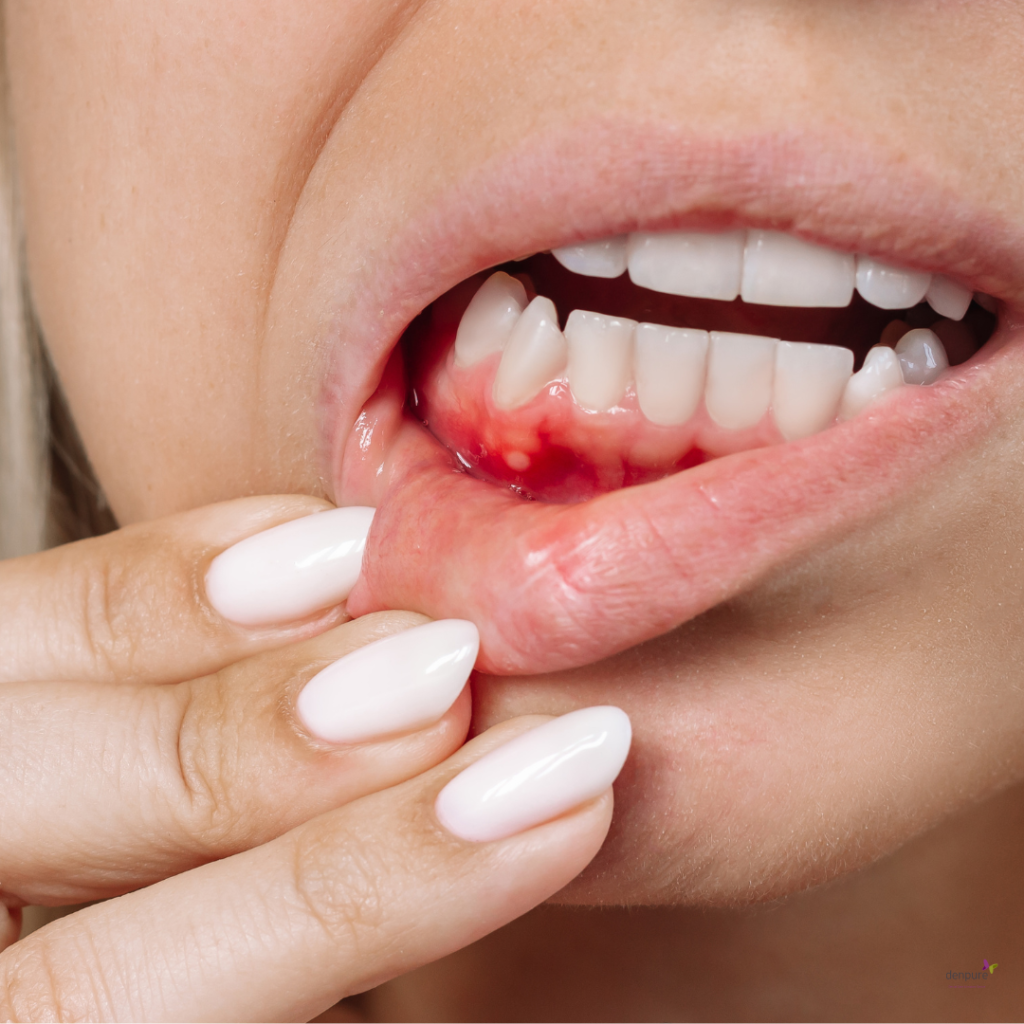Gum disease is a progressive condition that attacks the gums, and eventually the supporting jawbone. Almost half of adults across the world (47.2%) suffer from some form of gum disease, so it’s no big surprise that it is the main cause of tooth loss in adults.
If you’ve just been diagnosed with gum disease, or you’re worried about your risk, here’s the information you need on:
The first stage of gum disease is clinically known as gingivitis. The good news is that at this stage, gum disease is reversible and the symptoms will not cause irrevocable damage to your oral structures.
Symptoms of gingivitis include:
These symptoms are caused by the presence of plaque coating your gum line. Plaque is the waste product created after your eat sugar. It sticks to your gums, suffocating them, and causing the symptoms listed above.
How it’s treated
A session with the hygienist to remove the plaque from your gum line will significantly improve your condition. This, coupled with good at-home oral care and a healthy diet can completely reverse the first stages of gum disease.
Your dentist here at Denpure will ask you some questions about your diet to identify any culprit foods that are contributing towards plaque build-up. They may also ask you about how often you consume sugar (as it’s the frequency at which sugar is consumed that causes plaque, not the amount of sugar consumed). Often, we find that a few very simple changes to patients’ lifestyle are all that’s needed to fend off gingivitis for good.
To reduce the possibility of developing gingivitis, or to prevent it from developing into an advanced version of gum disease, we recommend:

Advanced stage (clinically known as periodontitis) is unfortunately, not reversible. At this stage, gum disease will have done some damage to your gums and supporting bone.
Symptoms of periodontitis
How it’s treated
Whilst periodontal disease can’t be reversed, there are numerous ways to treat it. Your dentist here at Denpure can perform treatments including root planing and root surface debridement to remove the bacteria attacking your tooth roots. Once this is removed, they can smoothen your tooth roots to encourage them to reattach to the gum tissue.
A gum graft can be carried out to address the lost gum tissue above the gum line (characterised by the clinical phrase ‘gum recession’).
Once the gums have receded, vulnerable areas of tooth structure are exposed and cavities become more likely as a result (as the tooth structure underneath your gums isn’t protected by tooth enamel). A gum graft achieves both protection for your teeth and improves their appearance by addressing lost gum tissue (that makes your teeth look longer and out of proportion).
Sadly, this is something we see often, but there is always a way to address tooth loss that has been directly caused by gum disease.
Once we have stabilised your oral health, addressed any remaining harmful plaque in your mouth, and extracted failing teeth, we can go through your options for replacing these lost teeth.
We strongly recommend considering your options following tooth loss and extractions that have occurred due to gum disease.
Our consultations are priced at £38 which is one of the lowest in the Uxbridge area, and indeed in the whole of London. Our implants are from premium and pioneering brand Nobel Biocare and start at £2595 (your £38 consultation fee will be deducted from this).
Our implant costs are one of the lowest in London, and this is particularly noteworthy as we use one of the best implant brands on the market.
This said, implants are generally the most expensive solution, costing more than bridges and dentures.
Don’t let gum disease progress and cause failing teeth. With early intervention, there are plenty of minimally-invasive options to nurse your teeth back to health.
We look forward to welcoming you at our dental practice in Uxbridge.
Back to Blog